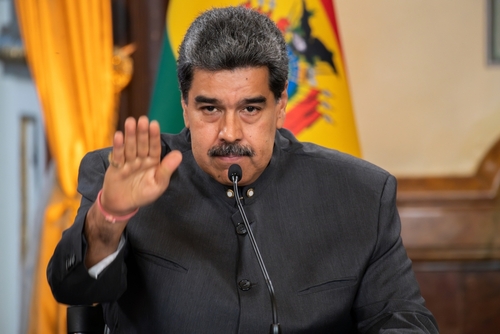President Trump’s refusal to rule out the assassination of Venezuelan leader Nicolás Maduro has reignited debate about the reach of American power—and the constitutional limits that should protect our nation from unchecked covert actions.
Trump’s Stand: No Denial on CIA Lethal Authority in Venezuela
In a move that has sent shockwaves through diplomatic and intelligence circles, President Donald Trump openly confirmed that the CIA was granted authority to conduct covert and lethal operations in Venezuela. The primary target of these actions was none other than Nicolás Maduro, the embattled socialist president whose regime has long clashed with American interests. When directly asked if assassination was on the table, Trump pointedly refused to deny it, stating, “I don’t want to answer a question like that.” This dramatic stance has reignited the debate over presidential power and the proper limits on American covert action, especially when the target is a foreign head of state. For conservatives who value strong leadership but also demand accountability under the constitution, this episode is a stark reminder of the tension between defending American interests and upholding the rule of law.
The policy decision did not emerge in a vacuum. US–Venezuela relations have deteriorated sharply since the days of Hugo Chávez, with tensions escalating under Maduro amid charges of authoritarianism, human rights abuses, and narco-trafficking. The US has supported opposition leader Juan Guaidó and recognized him as Venezuela’s interim president, while applying sanctions and diplomatic isolation to the Maduro regime. In 2020, Operation Gideon—a failed coup attempt involving US-linked mercenaries—highlighted the lengths to which both sides were willing to go. With Venezuela crippled by economic collapse and mass emigration, the Trump administration justified its actions as necessary for counter-narcotics and regional stability. However, critics warn that authorizing the CIA for lethal action risks repeating Cold War-era mistakes and undermining America’s moral standing.
Key Players and High-Stakes Power Struggles
The drama in Venezuela is defined by a cast of powerful actors and clashing interests. On one side, President Trump and senior US officials, backed by the CIA and military planners, pursued a strategy of maximum pressure aimed at regime change. Their motivations have ranged from stemming the flow of drugs to safeguarding American security and promoting democracy. On the other side, Nicolás Maduro clings to power with the support of loyal military, Russian and Chinese backers, and a fractured domestic opposition represented by Guaidó. The Colombian government, accused by Maduro of complicity, and Venezuela’s military intelligence apparatus are also deeply involved. These dynamics have created a dangerous environment where the risks of escalation and unintended consequences are ever present, especially as the US continues significant military operations in the Caribbean region.
As tensions escalate, the practical impact on Venezuelans and the broader region cannot be ignored. The threat or even suggestion of assassination has prompted Maduro to mobilize militias and intensify anti-US rhetoric, while ordinary citizens suffer from economic isolation and ongoing instability. Regional neighbors, including Colombia and Caribbean states, face the spillover effects of conflict and migration. The US policy, while framed as a defense of regional security, has polarized the international community and further isolated Venezuela on the world stage. Experts warn that setting a precedent for presidentially authorized assassination could erode international norms and embolden future administrations to bypass legal and ethical constraints.
Expert and Legal Analysis: Where Are the Lines?
Leading legal and human rights organizations have condemned the authorization of lethal CIA operations in Venezuela as a dangerous overreach. Amnesty International has labeled such moves “murder—plain and simple,” directly challenging the administration’s justification under US and international law. Academic analysts and former intelligence officials point out that the US has a long and checkered history of covert interventions in Latin America, often with disastrous results. Legal scholars are divided on whether presidential “findings” can legitimize assassination, but many argue this undermines the very constitutional checks conservatives have fought to preserve. While no confirmed assassination attempts have been reported under this new authority, the mere refusal to rule it out has set off alarms among those who believe in both strong national defense and the enduring value of American principles.
Despite the controversy, the Trump administration has remained steadfast in framing its actions as necessary for the security and prosperity of the United States and its allies. Supporters argue that confronting hostile foreign regimes is essential to protecting American interests and deterring adversaries. Yet, the episode serves as a sobering reminder: unchecked executive power—no matter how well-intentioned—can pose as grave a threat to liberty and constitutional order as any external foe. The debate over the limits of American covert power, especially regarding assassination, will continue to shape our nation’s foreign policy and constitutional debates for years to come.
Sources:
Wikipedia: Operation Gideon (2020)
TRT World: Trump authorises CIA covert action in Venezuela
Truthout: Amnesty condemns US lethal operations in Venezuela
Irish Sun: US weighing plot to assassinate Maduro Politico

